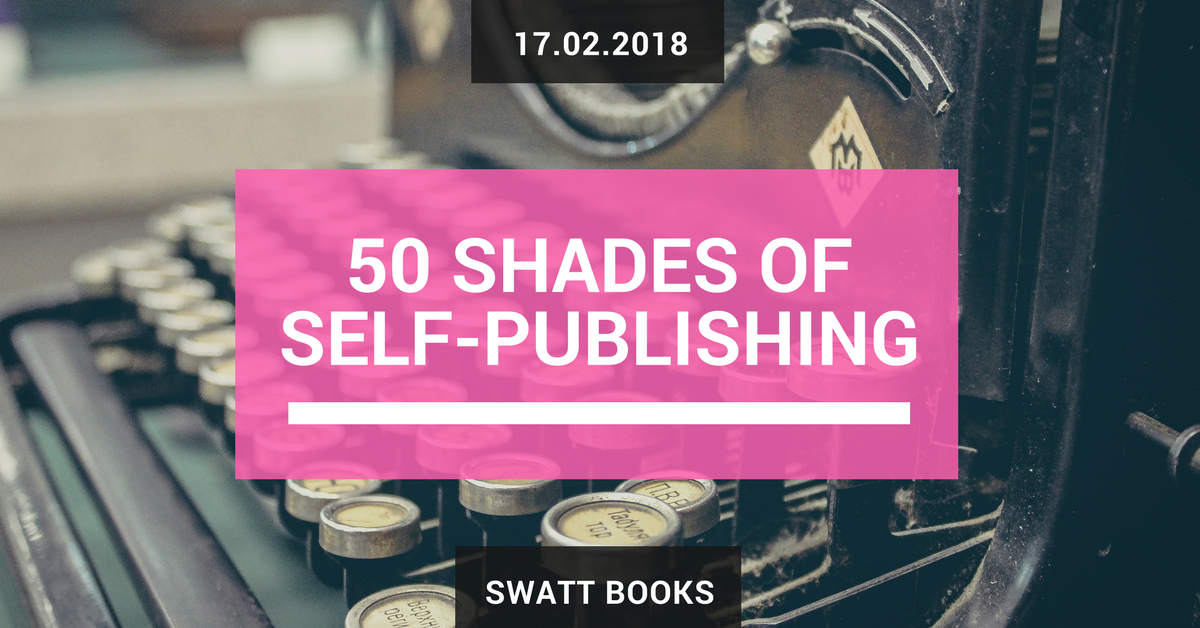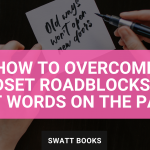Since self-publishing has grown in popularity and accessibility, the opinion of the literary world as to whether it is a good thing or a bad thing have been varied and polarising. People either love it or loathe it, they tout is as either the destruction of the publishing industry or the route to writers’ utopia! I exaggerate of course, but you get the drift.
In this article, I want to explore some of the self-publishing opinion that has appeared in the media, and weigh in with my take on the matter.
The destruction of the publishing industry
Change in any industry can be a scary thing for most people to accept, which inevitably leads to resistance and backlash; and the shift towards self-publishing is no exception.
Take Ros Barber for example. An author with a long career in traditional publishing, who in 2016 wrote an article for the Guardian newspaper[i] in which she said,
“You risk looking like an amateur … Good writers need even better editors. They need brilliant cover designers. They need imaginative marketers and well-connected publicists. All these things are provided by a traditional publisher, and what’s more, it doesn’t cost you a penny. They pay you! If a self-published author wants to avoid looking like an amateur, they’d better be prepared to shell out some serious cash to get professional help in all the areas where they don’t excel. And I mean serious.”
Then you have renowned book critic Ron Charles, who submitted an open letter to the Washington Post[ii] title “No, I Don’t Want to Read your Self-Published Book” in which he cited concerns that there were too many self-published authors, and that self-published books lacked quality, and where published by authors with little understanding of their audience or the market.
Or this quote from professional blogger Tom Jager in an article for Independent Publishing Magazine[iii]:
“The market is suffocated with worthless literature, and self-publishing contributes towards that mess.”
Not to mention that a brief skim through the various writers’’ forums will uncover a plethora of general opinion from authors and writing enthusiasts alike, such as this response to a question on Bayt[iv]:
“Few things can be as frustrating as self-publishing. The chances of (success) for any starting writer is minimal, and even more reduced if he decides to self-publish.”
The Route to Writers’ Utopia
As with any polarising subject, for every naysayer you have the flip side of the coin of people singing it’s praises. Such as best selling author and blogger Kristin Lamb who in a blog response[v] to Ros Barber’s article:
“Self-published authors have largely been responsible for many of the most beneficial changes in publishing history.”
Or novelist Louise Walters who is quoted as saying in an interview with the Guardian newspaper[vi]:
“Footing the bill to bring out the book means the responsibility is on my shoulders, but at the same time it’s incredibly freeing. I can market this book in any way I choose; I have real input into every decision regarding my work; I’ll even earn a fairer share of the proceeds from each sale … It’s only a book, after all, and self-publishing is a whole lot of fun.”
Carlos Harrison quoted Hugh Howey, author of “Wool”, in an article in the Miami Herald[vii] as saying:
“With self-publishing you don’t waste your time trying to get published, which can take years of query letters and agenting, and all this stuff. You go straight to the real gatekeepers, which are the readers. If they respond favorably and you have sales, you can leverage that into a writing career. If they don’t, you write the next thing. Either way you’re not spending your time trying to get published, you’re spending your time writing the next work.”
You also find champions of self-publishing in the same authors’ forums, such as Olivia Lynn Jormusch and her fantastic response to a Q&A question on Goodreads[viii]:
“I think self-publishing is a great option for just getting started and building your platform! It helps you walk through the entire process of creating, editing, finishing, publishing, and promoting your book, and you learn SO much through it!”
The Missing Opinion
One opinion that is suspiciously missing from the debate is that of the big publishing houses. In all my reading on the subject, I have yet to come across a sitting senior exec from any of the big 5 publishers going on record about their views on the boom in self-publishing. My gut feeling is that the Penguin’s and the Random House’s of the industry either are ignoring it in the hopes that it will go away, which is unlikely. Or they simply are taking the view that is it beneath them to worry about, and if a good book comes out of self-publishing then they could just approach the author directly with a book deal safe in the knowledge that the book has already proven itself. Which is exactly what happened with “50 Shades of Grey”, “The Martian”, and “The Celestine Prophecy”.
My Two Cents
As someone who makes their living helping authors to self-publish, my opinions on the matter should be pretty obvious. But I do agree with some of the points made by those who are fighting against the trend. There ARE loads of poor quality self-published books out there. Just because you can self-publish your book with just a few clicks of a mouse doesn’t necessarily mean that you should.
I think Louise Walters really hit the nail on the head with her comment about taking responsibility for her books’ success. If you truly believe in your book, invest in it! Yes, it is a considerable investment, but it doesn’t need to be the extortionate investment that Ros Barber would lead you to believe. Choosing the right editors, designers, and other author support partners is important and can make the difference between your book being a success and you enjoying the process, and you becoming bitter and disillusioned with becoming a writer and giving up on your dream.
In closing I would also like to add that I don’t view self-publishing as being black or white; good or bad. I see it as being 50 shades of grey in how appropriate it is for each individual author and their particular situation.
Do you have an opinion of self-publishing that you would like to share? Please comment below; I’d love to hear your views.
If you want to learn more about how I can help you through the self-publishing process, simply get in touch.
[i] https://www.theguardian.com/books/booksblog/2016/mar/21/for-me-traditional-publishing-means-poverty-but-self-publish-no-way
[ii] https://www.washingtonpost.com/news/arts-and-entertainment/wp/2014/10/01/no-i-dont-want-to-read-your-self-published-book/?utm_term=.ea88b7c37100)
[iii] http://www.theindependentpublishingmagazine.com/2016/06/the-main-problems-for-self-published-authors-tom-jager-guest-post.html
[iv] https://www.bayt.com/en/specialties/q/305907/what-is-your-opinion-on-self-publishing-are-these-books-not-as-good-as-books-from-publishing-houses/
[v] http://authorkristenlamb.com/2016/04/real-writers-dont-self-publish
[vi] https://www.theguardian.com/books/booksblog/2016/feb/22/i-didnt-want-to-resort-to-self-publishing-but-its-an-exhilarating-change
[vii] http://www.miamiherald.com/latest-news/article1944481.html
[viii] https://www.goodreads.com/questions/1154334-what-s-your-opinion-on-self-publishing





